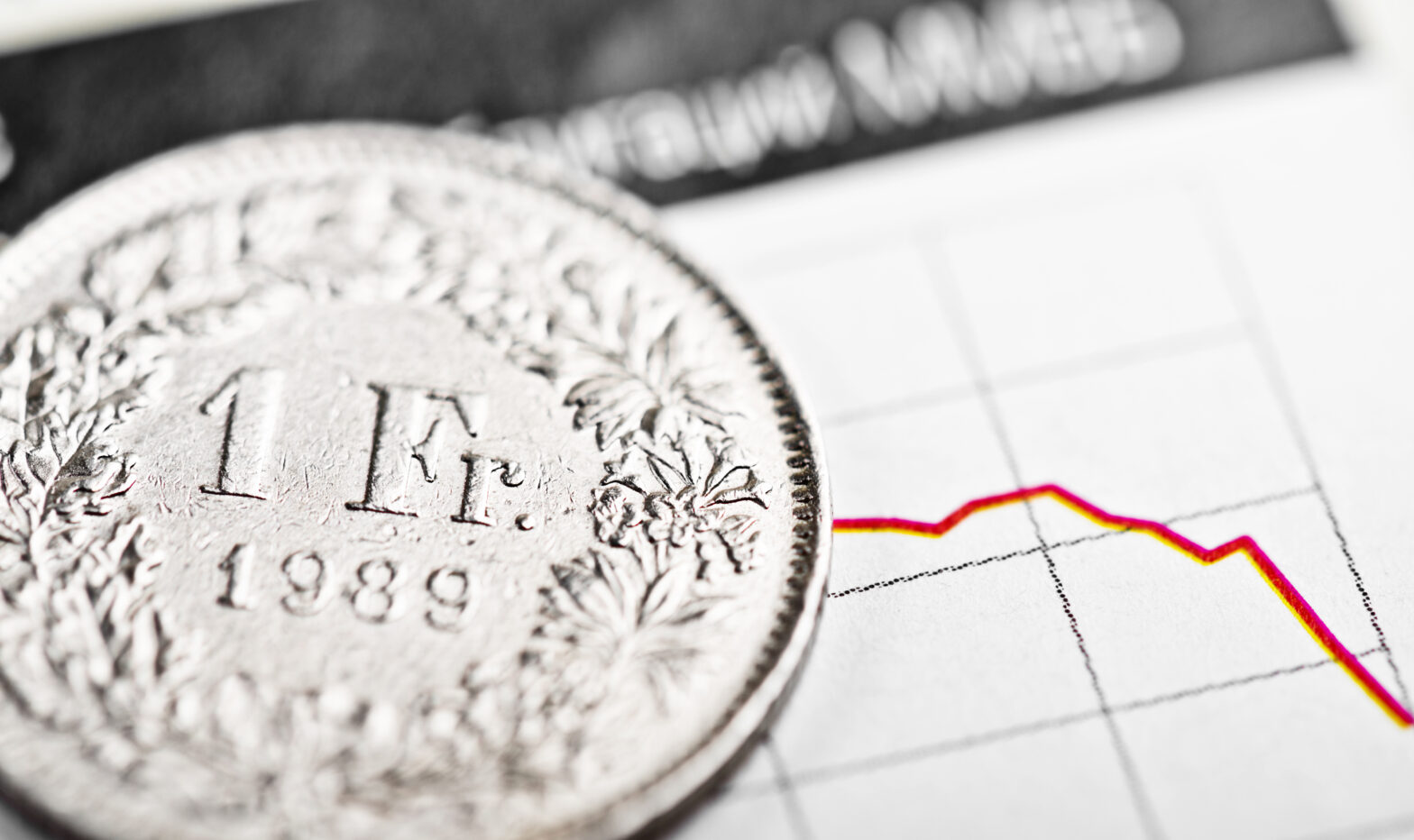In the midst of the Eurozone debt crisis, there was an increasing demand for the Swiss franc, which has long been viewed as a safe haven for traders in volatile times.
This demand made its price soar, which was bad news for Swiss exports and tourism. Given that nearly three quarters of Switzerland’s GDP comes from exports, a squeeze on exports means trouble for the Swiss economy as a whole.
It was for this reason that, in September 2011, the Swiss National Bank announced that the value of the Swiss franc would not be allowed to rise above €0.83. This limit would be enforced by the bank printing new francs and using them to buy up foreign currency. By the following autumn, the value of the franc had reached the limit, so the bank had to make good on its promise.
What happened – and why?
By implementing its currency limit, the Swiss National Bank was playing a risky game. Building up huge reserves of currency, it was burning through money and exposing itself to fluctuations in forex markets. By 2014, the Swiss National Bank’s currency holdings amounted to about 75% of GDP as the limit was repeatedly tested.
Although the cap was working – in the sense that it was helping to protect Swiss exports – the bank concluded that bearing the financial risks caused by rapidly increasing foreign reserves was no longer worth the benefits of keeping the cap. Therefore, it suddenly announced on January 15 that the limit would be scrapped.
Why was this such a shock for the markets?
Removing the cap essentially released all the pent-up potential of the Swiss franc, returning it to a level similar to that seen at the time the cap was originally announced. The rationale for the decision was rather nuanced, and the move was not preceded by the kind of consultation and preparation that occurred when the cap was introduced. It was for these reasons that its timing was not foreseen, and this led to some major market panic.
What causes forex fluctuations?
In general, there are a number of factors impacting exchange rates. In Switzerland, its current deflation is playing a role in its currency strength. Interest rates, trading deficits, public debt, political stability and economic performance also have effects. Elsewhere, economic announcements from key countries – non-farm payrolls being the biggest – can reverberate around global markets.
As with all markets, human emotion and reaction also play a role, meaning that media and internet reporting of events like the Swiss franc crisis can accelerate and exacerbate events like this.
What does it mean for consumers?
Swiss products – including holidays – have just become a lot more expensive. That’s bad news for those of us planning a skiing trip to Switzerland this winter, and buyers of Swiss goods. Anyone who enjoys the Swiss supremacy in chocolates, watches or other produce will be feeling the pain even now. Anyone repaying a Swiss franc loan will also feel the pain, and the broader economic shockwaves could have further destabilising effects for consumers globally.






